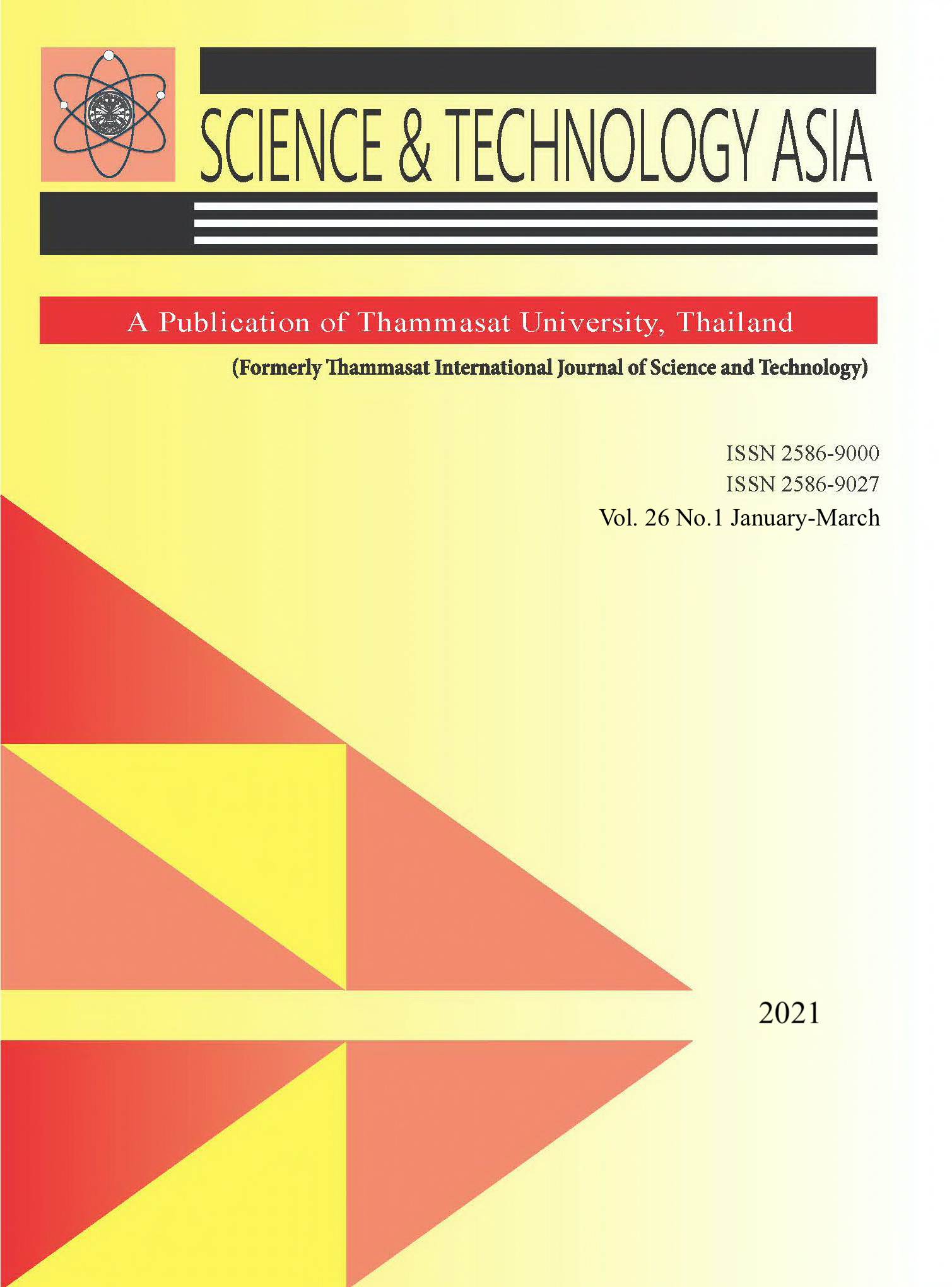Potential of Mao-Luang (Antidesma thwaitesianum Müll. Arg.) Waste for Bioethanol Production
Main Article Content
Abstract
Mao-Luang (Antidesma thwaitesianum Müll. Arg.) is a local fruit plant indigenous to northeastern Thailand. Mao-Luang fruit is widely processed into various food products such as wine, juice, and jam. This study aims to investigate the potential for using Mao-Luang waste (MLW) in bioethanol production. Pretreatment of MLW involved dilution with acid (1% (v/v) H2SO4) at 121°C for a period of 90 min before cellulase (Cellic®Ctec 2) hydrolysis at 50 ºC for 24 h, these were the optimum conditions that provided maximum reducing sugar yields of 11.48±0.20 g/L. Images obtained using a scanning electron microscope (SEM) were used to confirm structural changes in the morphological features and surface characteristics of MLW after the pretreatment. Bioethanol production using the MLW that had been pretreated with acid and cellulase hydrolysis was found to produce a maximum ethanol yield of 3.91 g/L or 0.49 g ethanol/g sugar, which corresponded to 95.84% of the theoretical yield by Saccharomyces cerevisiae TISTR 5339. This study has revealed that MLW displays significant potential as a cheap lignocellulose source for bioethanol production and adds to the value of MLW to be utilized for renewable energy production.


